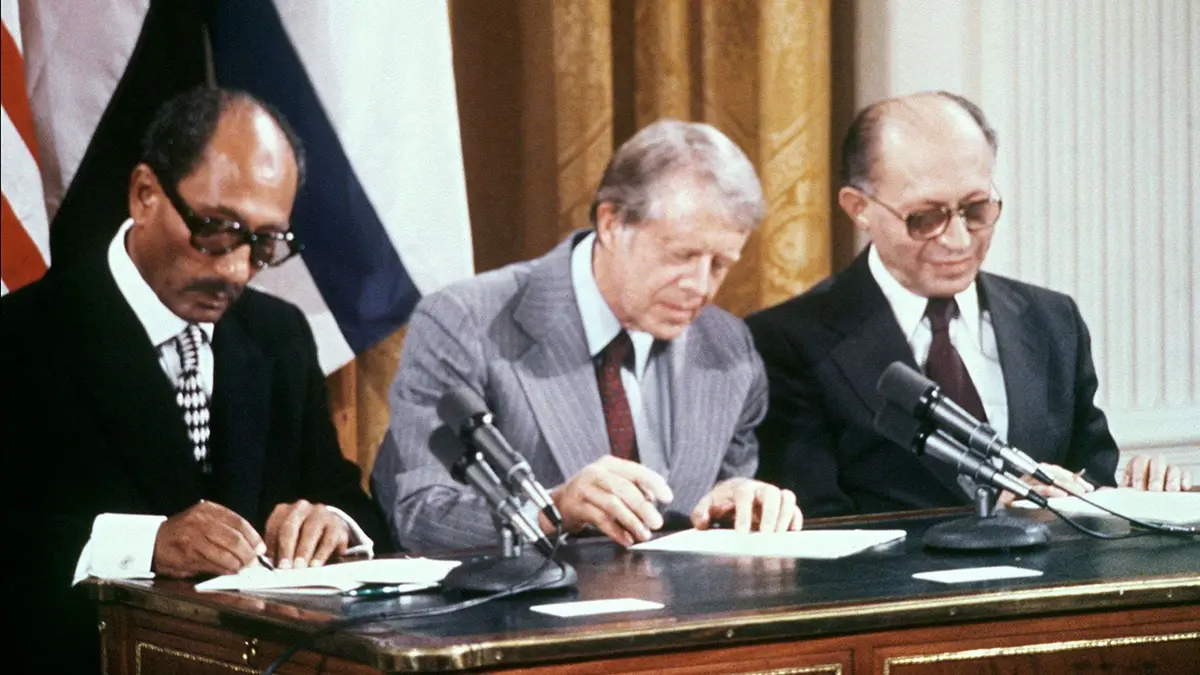46 years of the peace treaty between Israel and Egypt

Although the relationship between the two countries changed, bringing them closer, given that Egypt was one of the main Arab countries with which Israel maintained one of the greatest bilateral hostilities since the Arab-Israeli war of 1948 that exacerbated the mutual hatred to death, shortly after the State of Israel was established as such, in the light of Resolution 181 of the United Nations General Assembly, without doubt, the greatest cost of this agreement was the assassination of the Egyptian president, Anwar El-Sadat, in 1981, at the hands of Islamic radicals who did not forgive him for reaching an understanding with Israel, considering him a complete traitor to the ever-delicate underlying issue, that is, the Palestinian cause, as he had been the first leader of an Arab country who, on the way to preparing the best context for the signing of the aforementioned peace agreement, he previously visited Jerusalem and even gave a speech in the Israeli Knesset (Parliament).
The treaty was signed by President El-Sadat together with the Israeli Prime Minister, Menájem Beguin, in Washington, under the auspices of the then US President, Jimmy Carter, the promoter of the Camp David Accords between the two countries the previous year.
Egypt not only normalised its relations with Israel, despite the fact that in the early stages a kind of animosity had been generated even against the country itself by the other Arab states — the headquarters of the Arab League was moved to Tunis, although in 1989 it returned to Cairo — but also paved the way for a long period of unprecedented tranquillity between the two countries.
In fact, the Suez Canal, which connects Asia Minor with the Mediterranean, now allowed free access for Israeli ships and their armies withdrew from the Sinai peninsula, including the Jewish settlements there.
The link between Cairo and Washington also took on another dimension, continuing during the more than 30 years that General Hosni Mubarak was at the head of the land of the pharaohs, vice-president of Egypt at the time of El-Sadat's assassination, except for the period when Mohamed Morsi governed. Morsi had won the elections in 2011 with the backing of the Muslim Brotherhood, but was unable to withstand the social protests in the country and was replaced by General Abdel Fattah El Sisi, who formally assumed the presidency of Egypt in 2014 and remains in office today.
Looking at the Middle East, in general terms, permanent peace is hard won and won with difficulty; also etched in our minds is the death of Yitzhak Rabin, Prime Minister of Israel, at the hands of a fanatical Zionist in 1995, shortly after taking an extraordinary step with Palestine through the Oslo Accords.
Miguel Ángel Rodríguez Mackay, former Foreign Minister of Peru and Internationalist
Article published in the newspaper Expreso


